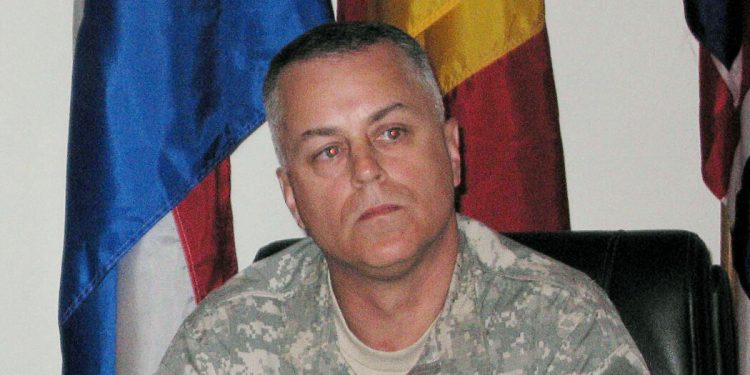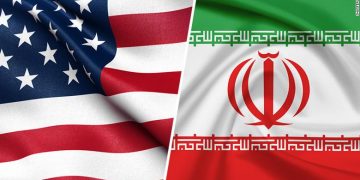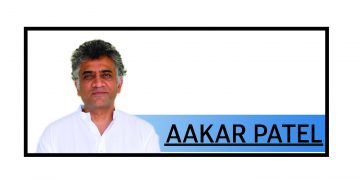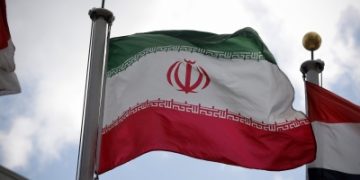Melvin Durai
A headline on the New York Times’ website recently caught my interest: “Trump Puts Pentagon in Political Crossfire With Tata Appointment.”
I immediately clicked on the link, wondering what relationship this ‘Tata’ had with the famous Tata family of India. Had President Trump appointed Ratan Tata’s great-grandson to a top position in the U.S. Defense Department? Was Trump perhaps trying to win favour with the Tatas, first appointing one of them to a prominent position, then getting Tata Motors to supply the U.S. Army with Tata Tanks?
But I was disappointed to learn that the Tata that Trump had appointed as a deputy undersecretary had no connection whatsoever to India’s Tata family. He was Anthony Tata, a retired Army officer whose grandfather immigrated to America from Italy. Tata is apparently also an Italian name, not just a Parsi name as I had thought.
The lesson, of course, is that I shouldn’t jump to conclusions about names. Just because a name sounds Indian does not mean that the possessor of the name has any connection to India. I should have already known this, because a few months ago, while reading about a high-profile criminal case, I came across the name of an American attorney named Patrick Patel.
Surely his ancestors were from Gujarat, I thought, but I was wrong. This Patel, like Anthony Tata, traces his roots to Italy. His grandfather was a boxer whose name was Patsy Pignatello, but who fought under the name of ‘Patsy Patel.’ When he died just seven hours before his grandson was born, the grandson inherited his fighting name and the opportunity to lure thousands of Indian clients.
Patel practices law in New Jersey, a state that has so many Indians that film star Shah Rukh Khan could run for governor. This means, of course, that Patel has a large pool of potential clients.
Driver: “I hurt my neck in a car accident. Which attorney should I hire?”
Friend: “What about Patrick Patel?”
Driver: “Is he Indian?”
Friend: “Of course, he’s Indian. Have you heard of a Patel who isn’t Indian?”
Driver: “But what about the name Patrick?”
Friend: “Oh, I’m sure he Americanised it. His real name is probably Pratik Patel.”
It’s common practice for many Indians in America to ‘Americanise’ their first names. This often happens among politicians. Bobby Jindal, the former governor of Louisiana, adopted his childhood nickname. It was easier to convince Americans to vote for ‘Bobby’ than ‘Piyush.’
Rohit Khanna, a congressman from California, is known to everyone as Ro Khanna. To be a hit with voters, he apparently needed to drop the ‘hit.’
Then there’s Dr. Manish Sethi, who recently ran for the Republican nomination for the US Senate from Tennessee, promoting himself to voters as ‘Dr. Manny.’ Unfortunately, Sethi, a trauma surgeon, lost the election. Perhaps next time, he’ll promote himself as ‘Dr. Seth.’
Thankfully, not all Indian-American politicians feel the need to hide or minimise their Indian identity. Pramila Jayapal, a congresswoman from Washington, may have lost a few votes by deciding to forgo the name ‘Pam Jay.’ Raja Krishnamoorthi, a congressman from Illinois, has resisted the temptation to promote himself as ‘Roger Krish.’ And Manan Trivedi, a politician in Pennsylvania, has not yet won a state election, perhaps because he hasn’t gone with the name ‘Man Triv.’
My parents, like many Christians, decided to give me an English name. But my wife Malathi and I opted to give our three children names that reflect their Indian heritage: Lekha, Divya and Rahul.
I do not mind the name ‘Melvin,’ but it doesn’t really convey anything about me. Perhaps I should consider ‘Indianising’ my name. Instead of Melvin, I could be Melvinder. No, Melvinder is too short. I think I’ll go with ‘Melvinderajagopalan.’ Patrick Patel would be proud of me.






































